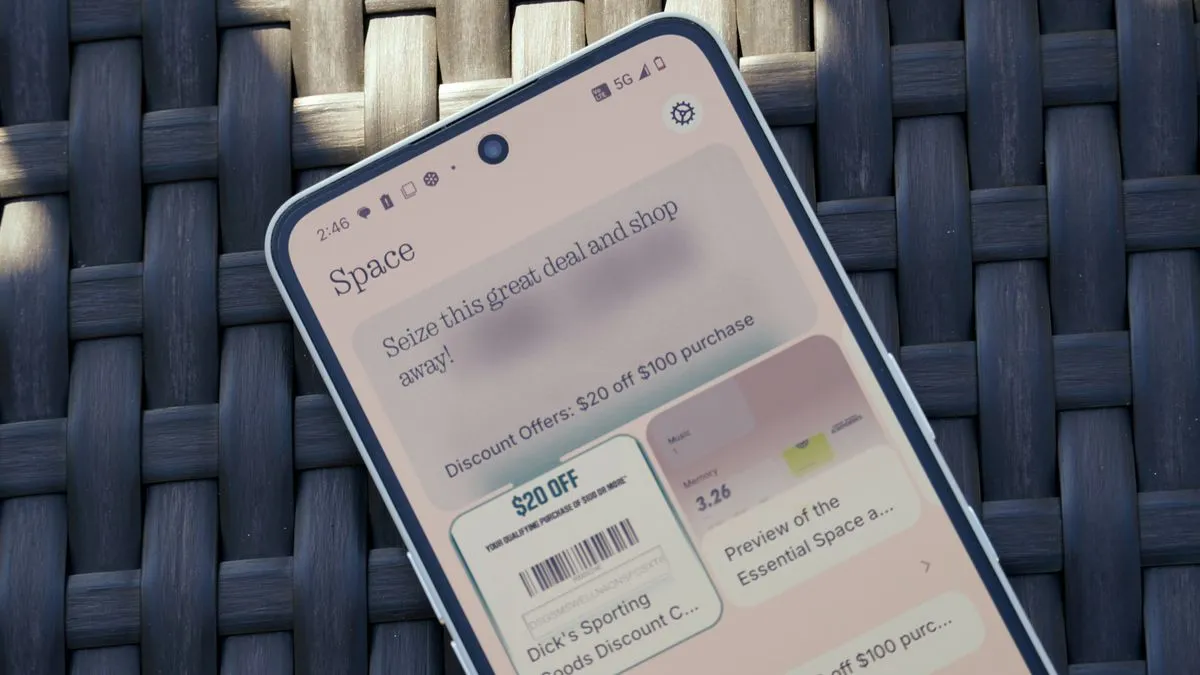
In the ever-evolving world of mobile technology, smartphone manufacturers have been exploring the realm of mobile AI with varying degrees of success. Major players like Samsung, Google, and Apple have introduced AI features in their devices, yet these implementations often feel disjointed. While some features shine and provide genuine utility, the overall experience with Google AI, Galaxy AI, and Apple Intelligence lacks cohesion and unity.
After observing the mobile AI landscape for over a year, Nothing has made a significant entry with its innovative Nothing OS 3, specifically designed for the Nothing Phone 3a series. The company opted to focus on developing these AI concepts instead of launching a traditional flagship device, a decision that drew some criticism at the time. However, more than six months later, it appears that this strategy may have paid off. The standout feature of the Phone 3a and Phone 3a Pro is undoubtedly the Essential Space, which has quickly become one of my favorite AI functionalities across all smartphones I've tested.
Essential Space serves as the central hub for all AI features within Nothing OS, specifically tailored for the Phone 3a series. Both the Phone 3a and Phone 3a Pro come equipped with the Essential Key, a dedicated hardware button that allows users to swiftly save content to their Essential Space. This functionality is available throughout the operating system, effectively creating a memory bank for users' activities on their devices.
Looking back, it’s impressive to see how closely Essential Space aligns with the vision articulated by Carl Pei, CEO of Nothing, during his teasers in June 2024. Pei emphasized the importance of integrating hardware and AI in a manner that is both practical and delightful for users. With the Essential Key and the AI-driven Essential Space, the Nothing Phone 3a and Phone 3a Pro have successfully realized this vision.
Essential Space functions as an AI memory for smartphones, a goal that resonates with the ambitious functionalities introduced by other AI features like Pixel Screenshots and Microsoft Recall. However, unlike these tools, which often serve merely as record-keepers, Essential Space distinguishes itself by offering a more integrated experience. For instance, while Pixel Screenshots organizes saved images, users must still rely on their memory to recall the context behind each screenshot. In contrast, Essential Space provides a holistic solution by combining functionalities.
During my hands-on experience with the Phone 3a and Phone 3a Pro, I found Essential Space to be reminiscent of a hybrid between Pixel Screenshots, Pixel Recorder, and Keep Notes—three of my favorite applications on the Google Pixel 9. The seamless integration of these features was a revelation, as I realized how much more efficient it could be to have them consolidated within Essential Space. With just a click of the Essential Key, I can capture a screenshot and instantly add a text or voice note, providing essential context about why I saved that particular item.
What truly sets Essential Space apart is its ability to autonomously identify action items and important details from saved content, allowing it to remind users later. For example, after adding a discount coupon to Essential Space, I received a timely push notification a day before it was set to expire. Similarly, I was reminded about my next running workout after saving a screenshot of my previous results. This proactive approach enhances user experience, making it not just a storage space but an intelligent assistant.
While Nothing's implementation of mobile AI is commendable, it is not without its flaws. The Essential Key, for instance, suffers from poor design; it's overly large, shiny, and inconveniently located near the power button. Furthermore, the Essential Space app, although promising, currently lacks features that would enhance its utility. It serves exclusively as a repository for saves made through the Essential Key, leaving users unable to create notes or reminders directly within the app.
Despite these drawbacks, the overall experience of Essential Space is commendable, as it provides a cohesive environment for managing AI-driven features. This stands in stark contrast to the fragmented experiences offered by Google AI and Galaxy AI. In light of Nothing's success, it may be time for giants like Google and Samsung to take a closer look at this innovative approach. With many individual features already developed, they could easily create a similar integration for their flagship devices. The challenge lies in piecing together these disparate functionalities into a unified experience, something Nothing has successfully accomplished with Essential Space.